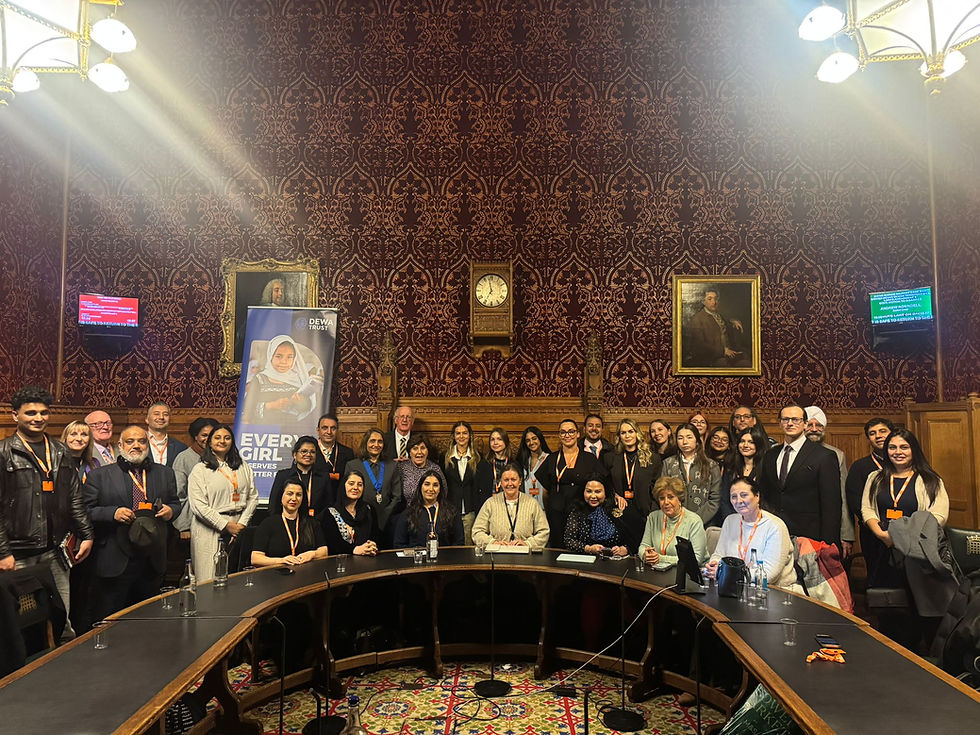THE UPCOMING GLOBAL FOOD CRISIS AND HOW WE CAN MITIGATE IT
- PARLIAMENT NEWS

- Nov 14, 2022
- 4 min read
By Miltiadis GkouzourisCEO, HVA International

Within months of Russia’s invasion of Ukraine, the effects of the sanctions against Russia and the impeded production of Ukraine began being felt worldwide and sent markets into a tailspin. Russia and Ukraine are two major food producing nations so any disruption to food supply would indubitably be felt far and wide. Fertiliser shortages adversely affected innumerable farmers and wheat shortages caused price hikes that had countless millions of consumers fuming. Even products such as sunflower oil have been affected seeing as Ukraine is one of the biggest suppliers in the world. World food supply is like an ultra-large container ship: one cannot suddenly change course and source vast quantities in a matter of weeks or months, so this disruption will result in a significant crunch but can also serve as an important teachable moment. In order to fully grasp the scope of this disruption, consider that the combined annual production of wheat in Russia and Ukraine is roughly 110 million tons. That is the equivalent of 4.5 million truckloads, much of which is exported worldwide. If one were to line those trucks up bumper-to-bumper, it would create a 60,000 km long caravan, a distance equal to 1 1⁄2 times the circumference of the Earth! Needless to say, world food markets will be turbulent and we need to brace for a bumpy ride.

Bread is a staple food, and when one in five people on our planet have been getting their wheat from Russia and Ukraine, any disruption to supply can wreak havoc. Billions of people are barely scraping by, so when wheat farmers are impacted by war and ports get blocked and a worldwide embargo is imposed, it will cause upheaval. We estimated earlier this year that Ukrainian wheat production would be no more than 11 million tons, and that only 30 million tons of Russian wheat would reach foreign markets. The shortfall in exported wheat would therefore be 30 million tons, which would seriously affect 400 million people. The cost to mitigate that shortfall would be close to €10 billion, which is more than the entire annual budget of the World Food Programme. If the EU and global community is not able to quickly source alternatives to this imminent shortfall in the wheat market, measures will need to be imposed to curtail consumption, such as rationing. The price of wheat will likely double in most countries and make it impossible for millions of people with low incomes to afford flour to make bread. There is unfortunately no quick fix for this sudden disruption to global food supply seeing as sourcing such large volumes of wheat elsewhere takes time. Economies of scale is a crucial factor in food production and finding large land areas that have suitable climate and soil characteristics and also suitable logistics in place is not done overnight.
The best way to avoid a protracted, costly global food crisis would of course be for Putin to end his ill-fated war. Seeing as peace seems unlikely anytime soon, the most constructive thing to do would be to diversify wheat production in the long term by setting up new large scale farms and regard them as an investment for the future as they will safeguard us against future crises like this one. We at HVA strongly advocate making the African continent the main future suppliers of food seeing as the continent is made up of 54 different nations, many of which have vast areas of uncultivated land. With the continent’s proximity to Europe, it should have been developed into a food bank for our continent years ago. Many areas in Africa have suitable climate and soils for wheat cultivation and access to water, seaports and a readily available and young work force. One could theoretically make up for the entire shortfall of wheat if just 0.1% of Africa’s land mass was dedicated to wheat cultivation (4 million hectares). Having operated in Africa for over 100 years, we at HVA know that the effort must be a well-coordinated one, else it can be an expensive flop. While most African countries today are far less troubled by conflict than Europe is, they are not fully industrialised. Setting up a large wheat cultivation campaign on virgin soils would require at least 5 months of intense preparations, meaning that it would be at least 1 year before the first harvest could be exported. Nevertheless, if the EU is serious about mitigating a global food and financial crisis, we think action needs to be taken sooner rather than later!

ABOUT HVA International Est. 1879
HVA International was established in 1879 and has its headquarters in the Netherlands. It is an historic agricultural development group that has served thousands of clients worldwide. HVA helped to fund, design, manage and modernise farms throughout the (developing) world.
A staunch supporter of the UN-formulated sustainable development goals, HVA’s value propositions include a full range of services, from conceiving and funding new agricultural projects to managing whole agricultural enterprises.
For more information on this article please contact:
Miltiadis Gkouzouris, CEO
www.hvainternational.nl






Comments